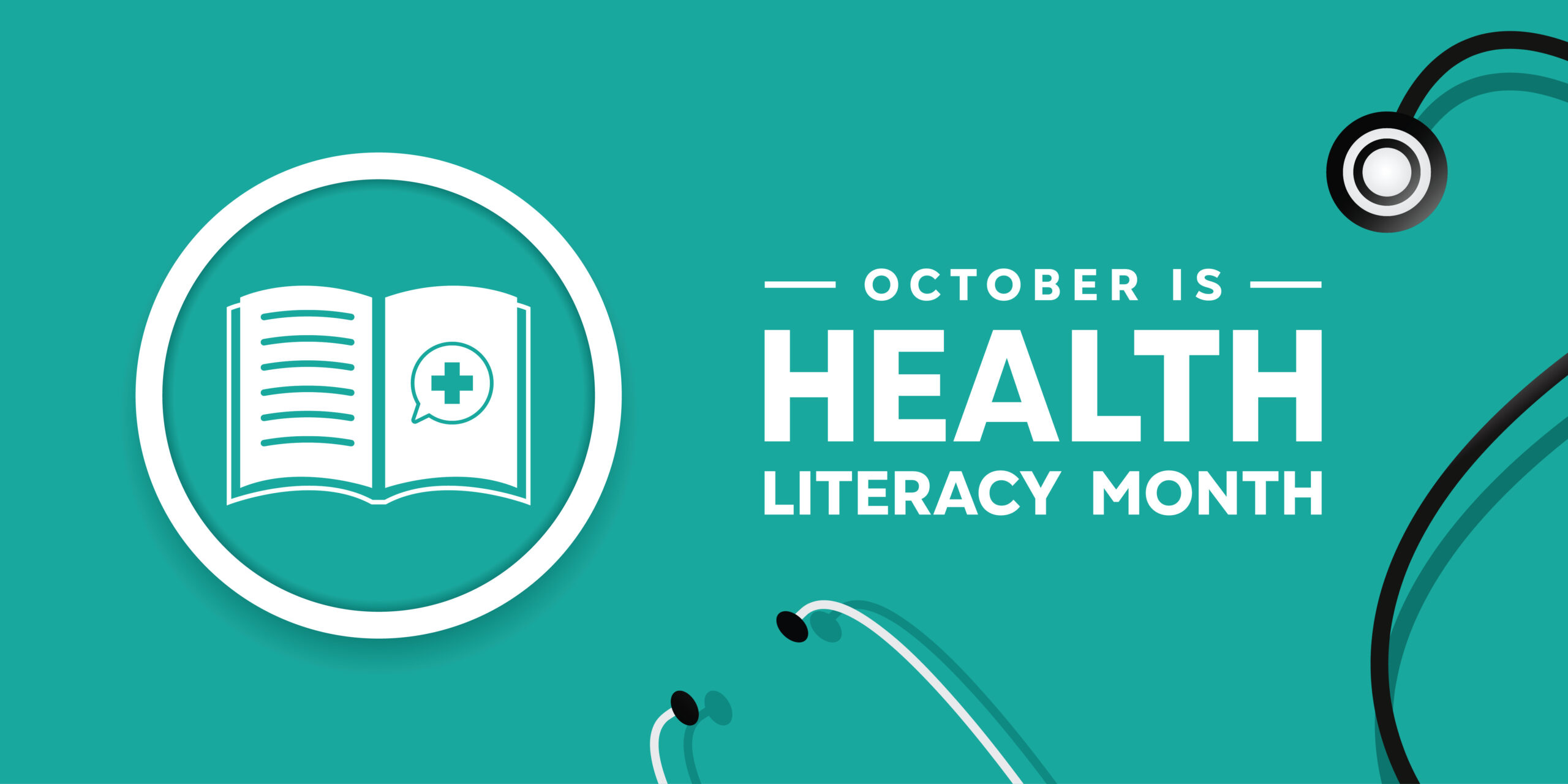October is Health Literacy Month, a month dedicated to raising awareness of the importance of making health information accessible to everyone.
What is health literacy?
The term “health literacy” was first introduced in 1974, describing how health information impacted the educational system. However, it wasn’t until the early 1990s that it appeared in healthcare literature. The definition has progressed to fit today’s evolving healthcare landscape and audiences. Last updated in 2020 with the release of Healthy People 2030, health literacy now describes and defines the literacy skills of people and organizations:
- Personal health literacy: the degree to which individuals can find, understand, and use information and services to inform health-related decisions and actions for themselves and others.
- Organizational health literacy: the degree to which organizations equitably enable individuals to find, understand, and use information and services to inform health-related decisions and actions for themselves and others.
When did Health Literacy Month start?
Health Literacy Month was founded in 1999 by Helen Osborne. As the founder of Health Literacy Consulting, Osborne has dedicated her career to improving communication between patients and healthcare providers.
Why is health literacy important?
Health literacy is essential for building trust and advancing health equity. When people understand health information and services, they are more likely to participate in their healthcare and feel confident in their care decisions. This empowerment fosters strong relationships with healthcare providers, which is critical for effective communication, treatment adherence, and improved outcomes.
What is health equity, and how is it related to health literacy?
Health equity is when everyone has a fair and just opportunity to achieve optimal health, regardless of socioeconomic status, geographic location, or other social determinants. Health literacy contributes to health equity by ensuring everyone can access clear, culturally relevant information and resources that enable them to effectively and efficiently navigate the healthcare system and make informed health decisions.
Who should care about health literacy?
Everyone should care about health literacy. While healthcare providers, public health officials, and policymakers have a vested interest, everyone will need help understanding or acting on health information. Low health literacy can affect anyone, regardless of education level, making it crucial for all of us to advocate for clear communication in healthcare settings.
This Health Literacy Month, let’s commit to promoting understanding and access to health information for all!
